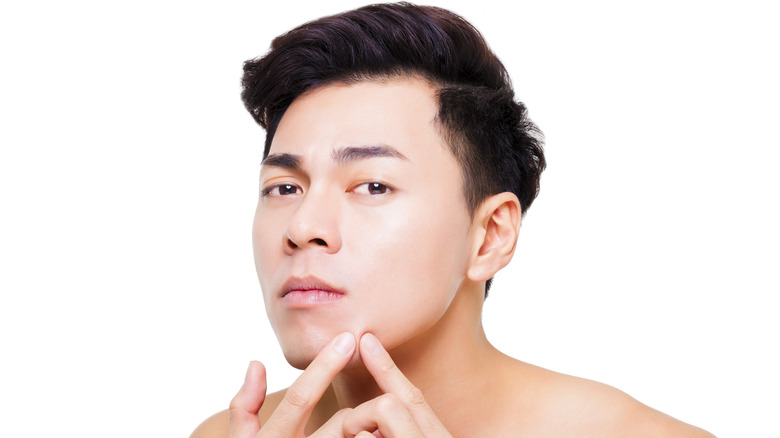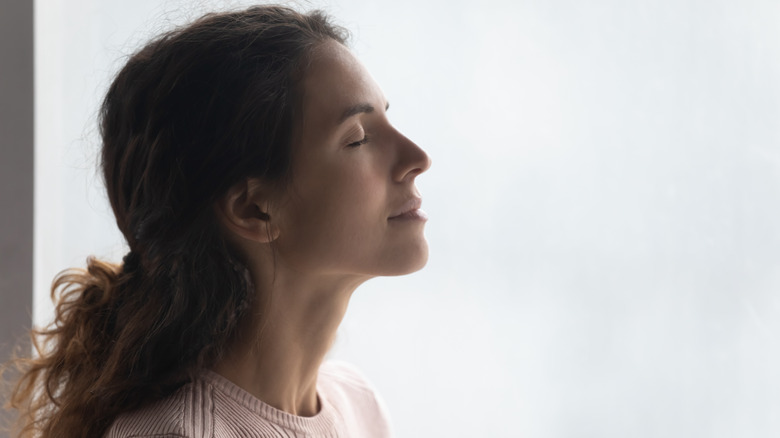This Trick Will Help You Stop Picking Your Pimples
If we're being honest, popping that one annoying pimple is pretty satisfying. It's our way of showing the pimple who's the boss. And practically everyone has done it at one time or another. But for some, popping and picking at pimples isn't just an occasional thing. It can become a compulsive skin-picking disorder that psychologists have actually given a name: dermatillomania. Whether you're a once-in-a-while picker, or whether your picking has gotten out of control and has taken on a life of its own, there are tips that can help you resist the urge to pick.
First of all, realize that it's actually pretty common — you are far from alone. The International OCD Foundation estimates that for around one in 20 people, skin picking is enough of a problem to be considered a disorder (via Cleveland Clinic). But many don't seek any help. Preventive medicine physician and wellness expert Sandra Darling told the Cleveland Clinic, "Most people who suffer from the disorder do not talk about it, and they rarely seek medical care because healthcare providers and loved ones often tell them to just stop. They are very good at hiding the disorder because of shame and embarrassment."
Becoming aware of your triggers can help
Practicing mindfulness is advised. Usually, there are emotional or situational triggers that lead to the urge to pick. It might be a feeling, like anxiety or nervousness, or something an action as simple as lingering in front of the mirror after brushing your teeth in the evening. Try to become aware of what the triggers are for you, and then intentionally choose an alternate response to that trigger. For example, if your hands wander to your face when you start to feel stressed, you could keep a stress ball handy and squeeze that instead (via Insider).
Picking at pimples may reward you with a feeling of satisfaction, but the immediate gratification isn't worth the long-term consequences. Picking your pimples can prolong healing and lead to scarring. If you've tried to stop but you still can't seem to break the habit, there is professional help available. New York licensed psychologist Sanam Hafeez advised Byrdie, "Enlist the help of a professional to help heal your skin and determine a healthy skincare regimen designed for your specific skin type and skin concerns."


